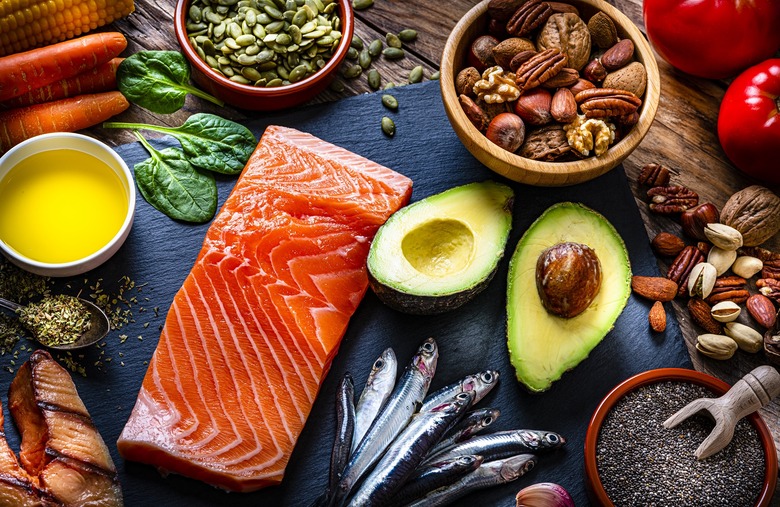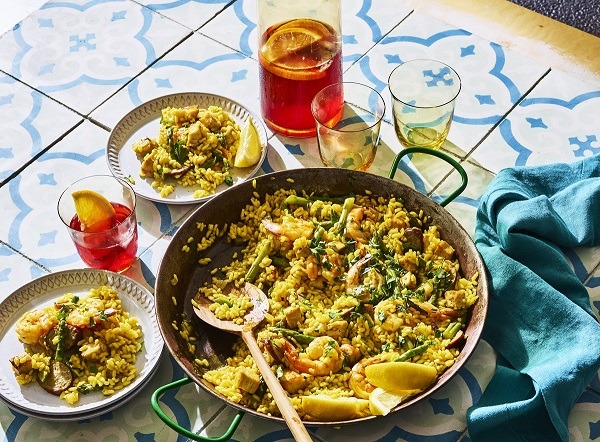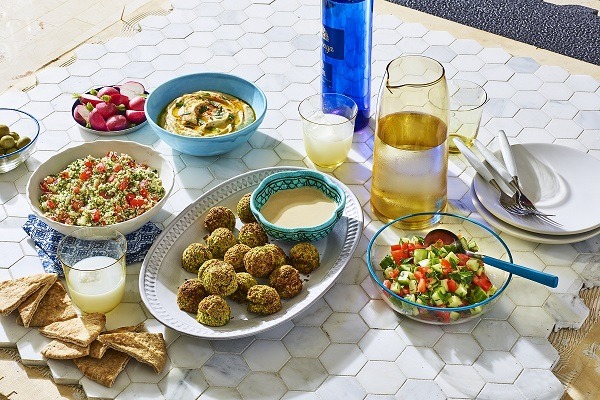A Beginner's Guide To The Mediterranean Diet
There's a reason the U.S. News & World Report has named the Mediterranean diet the best diet for 2021 — a title it's held for four consecutive years. Unlike fad diets, which can be extreme and restrictive, the Mediterranean diet is all about what you should eat more of instead of what you need to cut.
Plant-based, Keto, Whole30: What All Those Trendy Diets Mean
When it comes to weight loss, diets like keto, paleo, intermittent fasting and Whole30 are household names. But if you want to focus on living a longer, heart- and brain-healthy lifestyle, then the Mediterranean diet is regarded as a safe and effective option by organizations like the Mayo Clinic, World Health Organization (WHO) and American Heart Association (AHA).
According to Jaclyn London, Head of Nutrition and Wellness at WW (formerly Weight Watchers), the Mediterranean diet "promotes an overall more holistic approach to better health and well-being by practicing making nourishing food choices that energize you." London is one of a handful of contributors to the new WW cookbook, "The WW Mediterranean Table."
What is the Mediterranean diet?
The Mediterranean diet is an approach to eating and cooking that's inspired by the foodways of the countries surrounding the Mediterranean Sea, including Italy, Greece and Spain. The diet strays from the notion that we should avoid fats altogether in order to be healthy and instead recommends people add healthy fats to their diet, like those found in fish, olive oil and nuts.
"The tenants of a Mediterranean eating pattern emphasize wholesome, high-quality ingredients," London explains. "Mediterranean cooking is famous for its scrumptious dishes that make use of ingredients at their seasonal peak."
A food pyramid based on the Mediterranean diet highlights the wholesome ingredients that London mentions. The largest part of the pyramid consists of foods like fruits and vegetables, whole grains, beans, nuts, seeds and extra virgin olive oil. The center of the pyramid belongs to fish and seafood, while the smallest section is reserved for meats and sweets.
What do you eat on the Mediterranean diet?
One of the mainstays of the Mediterranean diet is extra virgin olive oil, which serves as a primary source of fat. You can incorporate it into your meals while cooking or have it in dips and dressings.
The Mediterranean diet also prioritizes fruits and vegetables. Starchy legumes like lentils and chickpeas are a great source of important minerals that help regulate blood pressure as well as antioxidants that support overall health and immunity.
For protein, fatty fish like salmon and tuna have anti-inflammatory benefits and are also packed with omega-3 unsaturated fats, which can reduce the risk of chronic disease. Other good sources of protein in the Mediterranean diet — like poultry, eggs, lean beef and other plain dairy products — don't need to be included each day.
Unlike traditional diets, you're not limited by calories and serving-size recommendations, so if weight loss is your main goal you'll need to work those factors.
Is there anything to cut out?
As London says, "when it comes to building healthier eating habits, the only thing to restrict is restriction." For this reason, the Mediterranean diet doesn't recommend you eliminate anything from your diet, but there are things you can view as "conscious indulgences."
You can enjoy alcohol and desserts, but adherents to the diet suggest you avoid anything that's highly processed and high in concentrated sugar. The same goes with red meat and dairy. You can still occasionally enjoy a nice cut of steak and a charcuterie board, but when following the Mediterranean diet it's suggested that you consume these things in small portion sizes, prioritizing quality over quantity.
What are the health benefits of the Mediterranean diet?
The Mediterranean diet has been linked to decreasing the risk of cardiovascular disease, lengthening the lifespan and promoting healthy aging. Studies have shown that the heart-healthy meal plan may reduce risk factors for heart disease and diabetes and that people who subscribe to the Mediterranean diet are less likely to be diagnosed with depression and dementia.
It's more than just a diet
If you choose to follow the Mediterranean diet, it's important to keep in mind that it's not just a food regimen, it's designed as a sustainable lifestyle. London explains that building a connection to the food itself, as well as the people you're enjoying it with, are important aspects of getting the full Mediterranean experience.
"The traditional Mediterranean lifestyle is one that cultivates conviviality," she says. "Staying close through meals and dining experiences is a central theme, so gather your gang and get ready for simple, easy, and nutrient-dense meals that satisfy."
Now that you know the basics behind the Mediterranean diet, here are two recipes from "The WW Mediterranean Table" that put its methods to use.
Paella Valencia
This recipe truly highlights the concept that the Mediterranean diet is not about restriction. Loaded with shrimp, chicken and sausage, paella brings the flavors from the Valencia region of Spain straight to your dinner table.
Air-fried Falafel with Tahini Sauce and Israeli Salad
Chickpeas are a great source of protein. In this recipe, they're mashed and formed into falafel balls and cooked in the air fryer — rather than the deep dryer — until crispy. Serve the falafel with homemade tahini sauce and a simple tomato and cucumber salad for an easy and affordable weeknight vegetarian meal.
For the Air-fried Falafel with Tahini Sauce and Israeli Salad recipe, click here.
More from The Daily Meal:
Vegan Recipes That Will Make You Want to Go Plant-based
Fish Recipes to Satisfy Pescatarians and Meat Eaters Alike
What's in Season in Spring: Asparagus, Spinach, Peas and More


